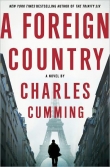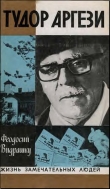
Текст книги "The Tudor Conspiracy"
Автор книги: Christopher Gortner
Жанр:
Исторические приключения
сообщить о нарушении
Текущая страница: 9 (всего у книги 19 страниц)
Chapter Twelve
He still had me by the hair, but as I felt his grip ease at the sound of her name, I curbed my impulse to heave him off me and strike back. I had an entire childhood of experience to draw upon, years of being waylaid and thrashed by the Dudley brood. These men of so-called good birth were all the same: They assumed someone like me would always capitulate to their superior force.
I’d let Courtenay go on thinking that, at least for a short while.
“Elizabeth?” he echoed. “Come now, you’ll have to do better than that. Why would our princess entrust her affairs to a grubby little street cur like you?”
I was finding it increasingly difficult to stay still. He’d drunk more than his fair share this evening; I could feel his grip quivering through his blade, and I didn’t want to end up with my throat slashed in this godforsaken brothel because he let his knife slip. I told myself to wait, that the cut he’d inflicted was superficial, a mere nick; the throat always bled a lot. I’d been cut countless times while being shaved. This was no worse. Something ferocious was building inside me, though. He represented everything I’d come to detest-a fop who believed he had the right to bully his way through life with impunity, to treat with contempt anyone he deemed beneath him. If he hadn’t left the poisoned note in my room, it was only because he lacked imagination, for he was perfectly capable of killing me without a second thought.
I’d had enough of men like him.
“That’s the second time you’ve called me a cur. And I happen to like dogs,” I said, and I slammed his rib cage with a backward jab of my elbow while simultaneously heaving up my back to knock him askew. Pivoting on my knees, I grasped him by the arm and wrenched it down, forcing his blade away from me. To my unpleasant surprise, he proved stronger than he looked, though I had caught him unawares. As he grappled with the sudden reversal in our positions, I yanked him to his feet with his arm up behind him, forcing him to release his dagger, which clattered at my feet.
“I can break it,” I said in his ear, and I wrenched his arm higher. He cried out. I kicked his ankles apart, steadying his stance. “Or we can come to an arrangement. Your choice.”
I yanked again. As I did, I pawed at the floor with my foot, dragging my poniard to me. I would have to release him in order to grab it, and I knew the moment I did he’d seize the advantage. Counting to four under my breath, I let him loose and leapt for the poniard, rearing up with it, slashing the air to stave him off. He backed away, cradling his wrist; he didn’t even try to go for the other dagger. Apparently I’d inflicted damage.
He grimaced and jerked his chin at the side table. “I–I need wine. My arm hurts.”
“This time,” I said, “let me pour it.” I yanked his doublet off the bed and threw it into a corner. Then I motioned him to sit on a stool by the bed, keeping my gaze on him as I poured from the flagon. He took the goblet gingerly, his wrist already starting to swell. In an hour at most, he’d be in severe discomfort.
“You’ll need to get that treated,” I told him. “Ice is best. Lucky for you, there’s plenty of it.” I paused. “Tell me about your friendship with Robert Dudley.” I went tense, anticipating his reaction; all I received in return was a scowl.
“I have no idea who you’re talking about.”
“I’d reconsider if I were you. I overheard you, remember, in the passageway with the princess? I know you’re working with Dudley. I also know the queen rejected your suit to marry her, which gives you plenty of motivation. What I want to know is what you plan.”
Panic flashed across his face. “You’re mad. We’re not planning anything.”
“No? Then perhaps you can explain why you’re scheduled to deliver a book to Dudley with a letter from Princess Elizabeth hidden inside it?”
He couldn’t contain his startled gasp. “How-how do you know about that?”
“She told me. Oh, and she wants her letter back. In fact, she insists on it.”
He recoiled, even as his tone turned belligerent. “She insists, does she? She thinks she can change her mind and I’ll get her letter back from Dudley, easy as that?”
I went still. “What do you mean by that?”
He gave me a malicious smile. “I mean it was delivered today. Dudley’s been waiting for it, and he isn’t going to change his course just because she’s had a pang of regret. He knows what is coming. He knows the moment the queen announces her betrothal to Philip of Spain it’ll be the end for him and his brothers. Renard will demand the head of every traitor in the Tower as a wedding gift.”
I went cold. “Why would he need a letter from her? Whatis he planning?
Courtenay shrugged. “I couldn’t say. I merely deliver-” I lunged, leveling my blade under his chin with one hand as I kicked his legs apart and grabbed hold of his injured wrist with the other. I twisted hard enough to wring out an agonized cry.
“If you think that hurts,” I said, “just imagine what the rack must feel like. You’re already marked, my lord, though you don’t know it. Though I secretly work for the princess, Don Renard hired me not a day ago to find evidence that would put you back in the Tower. And in my current mood, I’m thinking I just might oblige him.”
His eyes bulged. “Renard? He … he’s marked me?”
“He believes you’re behind a plot against the queen. But we know better, don’t we? We know your friend Dudley is the real mastermind. So, my lord, help me and I’ll help you.”
His breathing turned shallow. Sweat beaded his ashen brow. He looked frantically past me to the door, as if he awaited some impromptu rescue. I was surprised myself that his beast of a manservant hadn’t barged in by now, if only to see if his master was still alive. Evidently Edward Courtenay didn’t inspire much in the way of loyalty.
I tightened my grip on his wrist. “I don’t have all night.”
“I already told you,” he gasped through his teeth. “I don’t know anything-”
I twisted again; this time, he let out a piercing scream.
“Last time: What does Dudley plan?”
“No. God, please. Stop. I swear, I don’t know.” He was panting, his legs thrashing between mine. “He doesn’t confide in me. I just do as he asks.”
“What does he ask?”
“To gain Elizabeth’s confidence, that is all.”
I eyed him. “You’re lying.”
“No. Don’t!” Though I had his wrist and he was a mere half inch from being impaled under his chin by my knife, the pain must have grown bad enough for him to actually fling himself backward off the stool and go crashing to the floor. I had to let go and leap aside to avoid being tangled in his fall, looking down at him as he cowered at my feet. When he spoke, his tone was anything but repentant.
“You fool,” he said. “Kill me if you want to, but I can’t tell you anything more. Only Dudley knows what he’s about. I just convey his letters!”
The undeniable desperation in his avowal gave me pause. I didn’t trust him, not for a second. He could be lying through his teeth; he probably was, but he was my sole conduit to Dudley, and unless I was prepared to torture him, I had to strike a pact.
“Get up,” I said.
He staggered to his feet, his wrist hanging at an odd angle.
“Tell me about these letters. I assume you meant you both send and receive them? How many are there? Who does Dudley write to? Who writes back?”
He swayed where he stood, his cheeks sucked in. He was colorless. I feared he might actually faint. “Not many,” he managed to utter, a pinch in his voice. “Six or seven, back and forth, I think. I don’t remember. We hide them in different things; my manservant, he delivers and retrieves the parcels. All the letters were sealed. No addresses, just the names of shires written on them. I didn’t read any. I just did as he bade and waited here on the nights specified for the couriers to pick them up.”
He hadn’t read Dudley’s letters? If he was telling the truth, I couldn’t decide whether he was the biggest idiot I had ever met or the most naive.
“Which shires?” I asked tersely. “Think: Where did the letters go?”
His breathing was labored; the pain must be excruciating by now. “There was one for Sussex. Another for Surrey. Also Oxfordshire and Berkshire, I think. Suffolk, too. He arranged everything beforehand; I didn’t ask questions. Why would I? The couriers paid me. I sent half the coin to Dudley and kept the other half. Living at court isn’t cheap; my allowance from the queen barely covers my expenses.”
I almost rolled my eyes. “I can imagine. So you have no idea who those letters went to, but if Dudley arranged the delivery without you, he must have someone else working for him, to alert his recipients that the letters were waiting with you. Who?”
Courtenay let out a moan and staggered to the bed. He sat, grimacing. “How would I know? Do you think he lacks for eager menials? Any lowly guard or urchin who cleans out the bilge pits in the Tower will oblige a noble prisoner if he pays enough.”
I turned it all over in my mind, like the pieces of a disjointed jigsaw. Robert Dudley was not only receiving letters but sending letters out, to parties invested enough to ensure the earl’s silence through bribes. Those payments Courtenay sent must also furnish Dudley with the means to pay whoever he used to advance word to his conspirators. Not that any of this made me feel reassured. All those shires Courtenay had mentioned surrounded London, from north to south; Dudley must be hatching a conspiracy. From the sound of it, it was something big.
But what? How did Elizabeth fit into it?
“I must speak to him,” I said abruptly.
He gaped. “Are you mad? You’re nobody to him! Why would he tell you anything?”
“I’m not as much of a nobody as you might think,” I replied, and he flinched. “You’re going to get me inside the Tower. Or would you rather I reported what you just told me?”
“No.” He took a step to me. “I’ll do it. I’ll help you. Only I can’t do it overnight. My manservant … he knows the right warders to bribe. He has to arrange it.”
“You have twenty-four hours. Your man should be able to find me.” I paused for a moment to let my words sink in. “If you even think of betraying me, believe me when I say Renard will get everything he needs. Do we understand each other, my lord?”
I turned to the door. He called out in a wavering voice, “Remember what you promised! If I do this, you’ll not let Renard set his dogs on me.”
I glanced at him. “Use ice. And refrain from riding for at least a week, lest that arm stiffens and you lose its use. I’ll send your manservant up to assist you.”
Wrenching open the door as he collapsed on the bed, I walked out.
* * *
His henchman waited at the bottom of the stairs. The common room was crowded now, a multitude of masked men in various stages of undress, dancing and kissing and cornering each other in the smoky shadows.
“That took longer than I thought,” he remarked. He glanced at the bloodstains on my collar. “He must like you. He only cuts his favorites.”
“You should attend to him,” I retorted, and I strode past him, out of the common room. Retrieving my sword and cloak from the doorman, who gave me another knowing leer, I evaded his grab for my codpiece and plunged into the night.
Light snow was falling. I drew in drafts of the cold air, as if I could rinse the filth of the encounter with the earl from my person. As I trod back over the frozen river, whose surface felt decidedly less solid to me, I realized I was being followed and put my hand on my sword. However, as before on the bridge, Courtenay’s manservant seemed content to remain a distance behind, making more noise on the ice-hardened snow than a professional should. As soon as I reached the shore, I whirled about with my sword in hand.
Swirling snow filled the empty, icy expanse I had just traversed.
I tossed the stolen mantle in King’s Street and hastened, shivering, to the palace. Climbing the icy staircase to my room, I went still, a knot clogging my throat.
Then I forced myself to unlock the door.
Everything appeared the same as I had left it. Then, as I stepped inside and lit the tallow, I realized Sybilla had been here; she had returned to tidy my scattered belongings, setting the coffer and stool upright and folding Peregrine’s cloak carefully on my cot.
My knees gave way underneath me. Sinking to the floor, I dragged the cloak from the bed, and, burying my face in folds that still smelled faintly of him, I wept.
Chapter Thirteen
I awoke with a profound sense of loss and, more prosaically, a rumble in my stomach. Belatedly, I recalled that I’d not eaten so much as a crumb of bread since that greasy meal in the tavern off the bridge.
I padded in my hose to the basin, cracked the layer of thin ice, and splashed water on my face. Catching my reflection in my hand mirror, I went still. My newly trimmed beard could not disguise my haggard appearance. There were dark smudges under my red-rimmed eyes; my skin was the hue of old parchment. I looked as if I’d aged years.
I turned to my bed. I had fallen asleep, clutching Peregrine’s cloak. Now I had to fold it and put it aside, resisting my sorrow as I sniffed it and realized it was already losing his smell. I tucked it into the coffer, biting the inside of my mouth to stop my tears as I fished around for fresh hose and shirt. I’d brought few clothes in my stubborn refusal to admit I might be at court longer than I wanted to. Now I’d have to launder my soiled linens and-
Kate.
I rocked back on my heels. So much had happened in so short a time, I’d not spared her a thought. What she was doing at this moment? Had she already been to the stables to see to the horses? Or gone to tend her winter herb garden, which she protected as tenderly as she would its eventual spring shoots? If I shut my eyes, I could see her wrapped in her mantle, reaching a gloved hand down toward the frosted earth …
She must be told. She loved Peregrine. Somehow, I had to get word to her.
Drawing out my writing utensils, I composed a letter with the simple but painstaking cipher Cecil had devised for me. Employing the manual on basic animal husbandry that I’d brought in my bag, the cipher consisted of the first and third letters of each line of the manual’s odd-numbered pages. My note could only be read by someone with a matching book; in this case, Cecil himself. Once I was finished, I folded the paper. I had no seal.
A knock came at the door. I leapt for my sword, unsheathing it. Then I heard Rochester say, “Master Beecham? Are you awake?”
I set my sword aside. He stood outside, a pile of folded clothing in his arms. He gave me a forlorn smile. “Mistress Darrier mentioned you might have need of fresh clothes after…” He swallowed. “I trust these will fit. Her Majesty wishes you to join her in the chapel after you break your fast.” He shook his head. “Such a terrible affair. She was most upset when I told her. She wants the matter looked into thoroughly. That a mere boy could have-”
“Her Majesty is too kind,” I interrupted gently, “but there is no need for an inquest. Peregrine and I took our midday meal on the bridge yesterday. He must have eaten something tainted. He complained of stomach pains on the ride back.”
“Ah.” Though Rochester did his best to conceal it, I could see his relief. He had enough to contend with at court without a possible murder to investigate. “That is indeed unfortunate. It’s never safe to eat at the stalls. The meat: You never know where it came from. Cats, dogs, rats-in times of need, people will cook anything. Poor lad.”
I nodded. I needed him to go. I wasn’t sure I could maintain my composure if he kept talking. “Shall I get dressed?” I suggested.
He nodded hastily. “I’ll await you in the privy gallery.”
As soon as he left, I pressed my knuckles to my temples, staving off a wave of utter despair. Unraveling the bundle of clothing, I found a plain but well-cut wool doublet, breeches, hose, and underlinens.
I washed thoroughly before I dressed and ran a comb through my tangled hair. I needed to see a barber, too. After rubbing the crust of snow and dirt from my boots, I slipped my letter to Kate into my doublet and went to the gallery. Rochester brought me to a side chamber to partake of bread, cheese, beer, and dried fruit. I was grateful he didn’t mention Peregrine again, filling the awkward silence between us instead with chat of the weather and the rarity of the Thames freezing over, until the hour came to join the queen.
It was a long trajectory, through an upper loggia overlooking the barren gardens and several galleries where courtiers congregated to pass the time. As we walked, I asked Rochester about the Spaniard I’d encountered the previous day.
His mouth pursed. “That would be the Duke of Feria. He’s a trusted noble and confidant of-” He stopped himself. “A hard man,” he muttered, “as all these Spaniards are apt to be. I understand he wasn’t helpful to you.”
“He was taken aback.” I realized Rochester had almost admitted aloud that Feria was a confidant of Prince Philip. “I’m not sure how I’d have reacted in his place.”
“A sight better than he did, I’m sure,” said Rochester. “Mistress Dormer was the one who fetched me from the hall, scared out of her wits, while he stood there as if…” He sighed. “I suppose there’s no use stirring up what we can do nothing about.”
“You’re a good man,” I said.
“Somebody has to be” was his reply. “I fear there are too few of us these days.”
I debated for a moment. I had a sudden suspicion about Rochester that I needed to confirm. It was a calculated risk but worth the attempt. He could always refuse.
“I have a missive I must send.” I removed the letter from my doublet. “A friend of mine should be told of my squire’s passing. Could I impose on you to…?”
He came to a halt. “I suppose you’ll want it sealed and sent by courier?”
“If possible. Can you see it delivered to Theobalds House in Hertfordshire?” I did not elaborate; as color crept into his fleshy cheeks, I knew without a word spoken that he had recognized the name of Cecil’s manor. I almost smiled, despite the circumstances.
Rochester looked at me. Still without speaking, he took the missive and tucked it into the large pouch at his belt. “Just this once,” he said, turning to resume our walk. “I ask that you keep it between us. I’m not authorized to use our couriers without leave.”
“I’m very grateful,” I said softly.
In the spacious chamber where I’d selected plum velvet for Mary, the queen and her women sat before the hearth. I bowed on the threshold; the queen rose and came to me. She wore black, her high peaked collar framing her drawn features; she looked tired as she took my hands in hers in a maternal gesture and said, “I am deeply grieved by your loss, Master Beecham. No child should ever die thus.” Her voice wavered. “No child should die.”
“Majesty,” I murmured. “I am deeply honored.” As I spoke, I lifted my gaze to see Lady Clarencieux and young Jane Dormer in the background. They, too, were in black and regarded me sadly. Standing apart, the alabaster hue of her skin in striking contrast to her dark gown, was Sybilla. She inclined her head, as though we had only just met.
Mary said, “I’ve ordered that your squire be interred in All Hallows Church. His body is there; you may go and pay him your final respects later, if you wish. The burial is scheduled for the afternoon. This private mass is for us.”
I recognized this singular privilege. Royalty never attended funerals, much less those of commoners; Mary’s decision to hear a mass in honor of Peregrine was exceptional, a display both of the esteem in which she held me and of her innate kindness.
It brought a lump to my throat as we proceeded into the chapel. The scent of incense lay thick in the enclosed air, and while this private place of worship was not large, a deep sense of intimacy pervaded it. Frail winter light pierced the jeweled stained-glass windows set high in the stone walls, gilding the painted columns of the transept and carved angels entwined above the purple-velvet-draped altar.
I’d never heard a Catholic service before, but as I took my place in the pew and the priest began to recite the litany, the rhythmic cadence of his Latin brought me unexpected peace. I allowed myself to release the fury and sorrow for a few moments and pay homage to the boy I would always remember, my intrepid friend and companion whom I’d not valued as much as I should.
“God in heaven,” said the priest, “those who die will live in your divine presence. We lift our prayers to you and your son, our savior, Jesus Christ, who died for our sins and now lives in eternity. May the souls of our beloved departed ones rejoice in your kingdom, where tears are wiped away and your praises are sung forever and ever. Amen.”
I made the sign of the cross, startled by my instinctual memory of the act. Mistress Alice had taught me in my childhood; she had remained steadfast to the vanquished Roman practices of old, but it had been years since I had performed it. Though it was ingrained into the very weft of our world, the root of hatred and disorder, I’d rarely had the luxury of considering my place in the afterlife; I’d been too busy trying to protect my hide in this one. Still, as the queen rose from her pew and I marked the genuine devotion on her face, I envied her ability to seek solace in dusty, time-honored rituals. No matter how much faith I lacked, I would never forget what she had done for me this day.
Outside the chapel, I bowed again over her hand. “May your squire find swift passage through purgatory into the kingdom of heaven,” Mary murmured and she returned with her ladies to her rooms. I stared after her for a long moment and was about to walk away when the apartment door reopened. Sybilla emerged. She quickly shut the door behind her, with a furtiveness that made me think she was slipping out unseen.
“Shall we walk?” she asked.
We moved into a gallery, where the chill seeping through the walls was smothered by ornamental tapestries, smoke-darkened paintings, and wrought-iron sconces festooned in melted cascades of wax. The evening tapers, now burned to nubs, were being collected by servants to be melted and recast, candles being one of the court’s largest expenses. Icy sunlight filtered through window bays overlooking the gardens; beyond the mullioned panes arched a brilliant cloudless sky-one of those astonishing skies that turned the winter-bound landscape into a glittering wonder and almost made you forget the long, bitter months yet to come.
At length, Sybilla broke the quiet. “Did you keep your appointment?”
“Yes.” I paused. “Although it did not go quite as I expected.”
“Few things do.” I met her violet-blue eyes. Her brow creased. “You seem perturbed. Did you discover something that troubles you?”
Now that we were alone together, I recalled how she had touched me in my chamber moments after Peregrine had died in my arms, how she had been concerned for me and offered to help. I’d just discovered that Rochester was more than he appeared; that while he loved and cared for the queen, he evidently didn’t wish to see Elizabeth fall to Renard’s wiles.
Might this enigmatic woman also be of value to me?
“I want to thank you for your assistance yesterday,” I said. “It was very kind, considering I am a stranger to you.” As I spoke, I could trace the stroke of her hand with the cloth over my bare skin, her throaty whisper: Tell me who you are …
“There’s no need to thank me. I know what it is like to lose someone.” She came to a halt before an alcove. “And I hope we’re not strangers anymore. Indeed, I know far less of you than you do of me. No doubt you’ve already been apprised of my own misfortunes.”
“No,” I said, surprised. “I assure you, I have not.”
“But Renard hired you. Surely he made some mention of me?”
“He did, but he didn’t say anything … Well, he did say one thing. He told me you were spoken for. I assumed he meant to warn me away.”
“Did you?” She gave a taut smile and sat on the window seat. As I perched beside her, she arranged her skirts. “Simon Renard is my benefactor,” she said. “He took pity on my mother, sister, and me after we left England.” She lifted her gaze to me. The impact was almost visceral; I’d never met any woman except Elizabeth who had such intense purpose in her expression. “My father and three brothers were executed for participating in the Pilgrimage of Grace. The king placed our family under attainder of treason.”
I knew about the Pilgrimage of Grace. It started in Yorkshire as an initial demonstration to challenge King Henry’s supremacy over the Church and his confiscation of its benefices. Anne Boleyn was dead and Henry had wed Jane Seymour, but it hadn’t stopped his and Lord Cromwell’s drive to accumulate ecclesiastic wealth. Henry placated the Yorkshire dissenters by promising to hear their grievances. Once he fulfilled his promise, he had Cromwell dispatch an army against them.
Over two hundred men and women in Yorkshire had died by the king’s command.
“I was just a child,” said Sybilla, “but I learned firsthand what defiance can bring. The king did not impose punishment directly on us because we were women, but the result was still the same. His attainder left us penniless, without hope of a future. So my mother took us abroad, first to France and later to Spain.”
I recalled Jane Dormer’s spiteful words the night of the feast: And you, my lady, should be more careful, given your family’s history …
“Is that where you met Renard?” I asked. “He mentioned that he’d served as ambassador to the French court.”
“Yes. He saw us settled in Spain.” She paused, as if the memory pained her. “We had nothing to commend us, but he had heard of my father and brother’s actions. Those who died in York were declared traitors here, but abroad, in Catholic courts, they were revered as martyrs. Renard found my mother a post in the Spanish Hapsburg court as lady-in-waiting to the empress; my sister and I became his wards. When the empress died a few years later, we attended Charles’s daughters, the infantas. It was at Renard’s behest that I came here to serve Her Majesty.”
“I see.” I did not betray my curiosity. She was Renard’s ward: It explained his covetousness of her. Why, though, was she confiding in me?
I decided to opt for the direct approach. “I’m not sure why you’re telling me this.”
She tilted her head thoughtfully before she leaned close. Her distinctive perfume flooded my senses. “I told you, I want to help you.”
I sat still. “I’m afraid I don’t understand.”
“Oh,” she said softly, “I think you do. You were almost poisoned because of it. You must have considered by now that the man who left that note in your room is the same one who hired you. After all, Renard’s ultimate goal is to-” She suddenly drew back as a burst of laughter preceded a group of courtiers entering the gallery.
In their midst, her hood crumpled about her shoulders, her hair like damp flame, walked Elizabeth.
Urian tugged on the lead in her hand. Her laughter rang out, high and effervescent. As she neared us, she twirled about to wag her finger at a tall man in dark damask, wearing a large feathered cap. “Enough of that, my lord. I vow, one day you’ll go too far. Do you think me a hive to take in your honeyed words?”
It was then that I realized the man bore his arm in a black silk sling.
Edward Courtenay.
Disbelief kept me frozen to my seat. He did not look much worse for the arm-twisting I’d given him; that ridiculous sling seemed donned almost as an accessory as he made a move toward Elizabeth with his free hand and she tossed her head, dancing away. The others accompanying them were also young and privileged, strutting with costumed elegance. Elizabeth’s ladies trailed behind, looking less enthusiastic.
Sybilla started to her feet. “Get up!” she hissed at me. As I rose, I bit back my fury. Gossip could spread faster than lice at court, but surely Elizabeth didn’t yet know about Peregrine. She wouldn’t be laughing and sauntering with Courtenay if she did. Nevertheless, I tasted iron in the back of my throat. Even if she didn’t know, how could she continue to indulge Courtenay? Did she deliberately invoke disaster?
She acted as if she hadn’t seen us like statues in the alcove, until Urian barked in joyous recognition and tore the lead from her hand, leaping toward me.
Elizabeth stopped. She turned to us. As I grappled with the dog, I murmured, “Your Grace,” and at my side Sybilla dropped into a curtsy.
Courtenay strode up, saw me petting Urian, and swerved angrily to Elizabeth to hiss, “Is that him?” She gave a terse nod. Caressing the dog’s chilled silvery fur, I braved a look at her. Her eyes had gone cold; I knew that look. She was warning me not to say a word.
“Fancy that,” guffawed Courtenay. “So the dirty cur did not lie. But really, cousin Bess, you must choose your dogs more carefully next time. This one’s a rogue.”
Only her quick, probing glance at Sybilla betrayed Elizabeth’s anxiety. I suddenly understood. Courtenay must have questioned her about me, demanding to know if I was her hireling before complying with my request. The man was bold; I had to give him that. I’d held a knife to his throat, nearly broken his arm, and threatened to report everything I knew if he didn’t do as I bid, and still he’d taken the chance.
Now Elizabeth was doing what she must to protect me.
She yanked at the lead-“Urian, come!”-and proceeded down the gallery.
Courtenay turned to me with a sneer. “Fancy that. I had a mind to have you cut into pieces so small not even your mother would recognize you. Now it seems I must play along. Tomorrow at the stable gate, at the stroke of one.” He cast an appraising look at Sybilla. “My lady Darrier,” he purred, “if I were you, I’d be more circumspect in choosing those with whom I idle away my time. We wouldn’t want anyone to think you’re consorting with the enemy, now would we?”
He clucked his tongue in mock reproof before he strode after Elizabeth. As the princess’s ladies moved past us, I caught sight of her favored matron, Blanche Parry, among them. She looked haggard.








